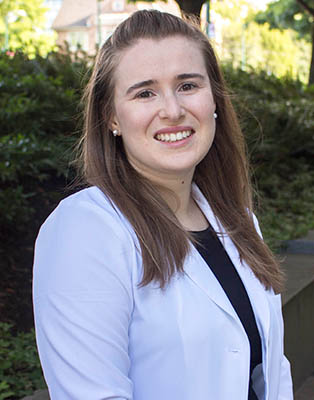Kathryn Darras, a recent graduate from the Faculty of Medicine’s Radiology Residency Program and current nuclear medicine resident, was awarded an Education Scholar Grant for over $100,000 CAD from the Radiological Society of North America (RSNA) – making her the first Canadian recipient.

Kathryn Darras
The two years of funding is dedicated to the development of innovative educational strategies for radiologic sciences. Dr. Darras and her team plan to use the funds to create virtual and augmented reality systems to enhance the learning experiences of medical students.
“Radiology is a complex topic so this funding will help create a new tool to help students learn about normal and abnormal anatomy,” she said. “They’ll be able to interact with the virtual world – as well as manipulate the augmented realities by scanning and zooming in on images.”
This will be the second educational resource created by Dr. Darras – who developed the evidence-based UBC Radiology Teaching App, last year. The app encourages medical students to build their knowledge and confidence in radiology with a variety of interactive medical images, as well as access to clinical cases and reasoning. Since its release less than a year ago, the app has garnered close to 20,000 downloads and is being used as a teaching tool for medical students all over the world, including in developing countries.
“The UBC Radiology Teaching App was designed to be integrated with any curriculum – not just UBC’s,” she said. “And it is free to download on any IOS or Android platforms.”
For the RSNA grant, Dr. Darras will be working with the same team including software engineer Matthew Toom, a fellow UBC resident based at UBC’s Family Practice residency site in Nanaimo, academic supervisors Bruce Forster, Professor and Head of Radiology, and Savvas Nicolaou, Professor of Radiology and the Department’s Vice Chair of Undergraduate Education and Continuing Professional Development.
“Technology has changed the practice of radiology,” said Dr. Darras. “And I think it will transform how we teach it.”